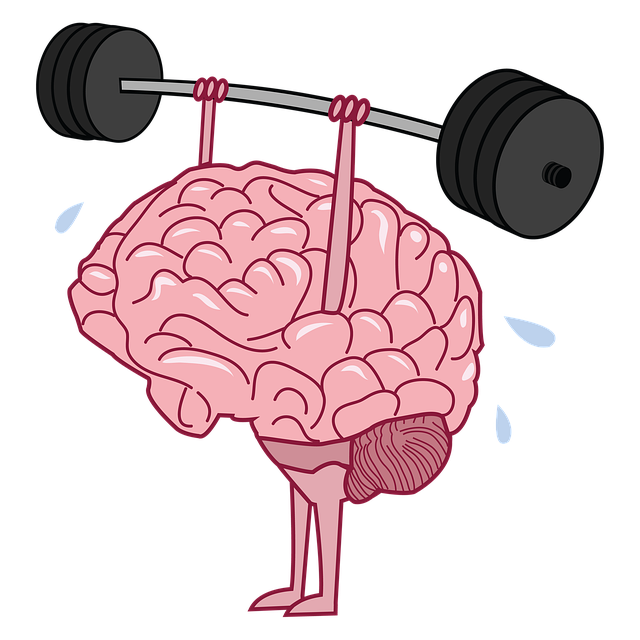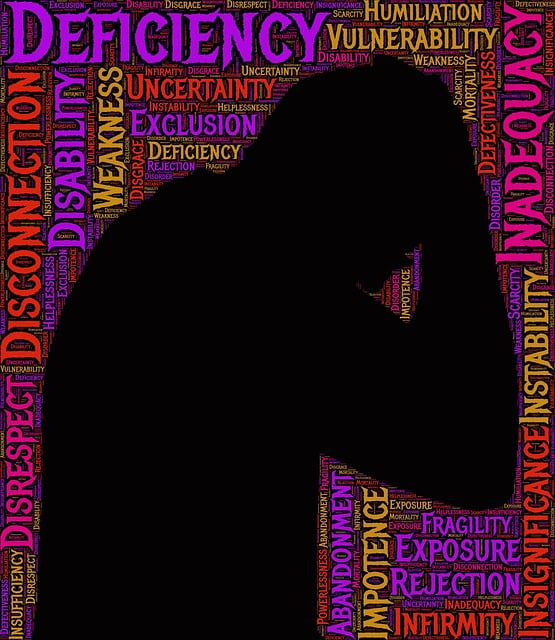Louisville Codependency Therapy offers a comprehensive approach to mental health, combining RFM (Risk, Resilience, and Strengths Modeling) with holistic strategies to build emotional resilience. By assessing individual strengths, teaching self-awareness, and establishing safe environments, this methodology helps clients manage codependency, enhance coping mechanisms, and thrive despite life's challenges. Through exercises like mindfulness and exposure therapy, patients gain adaptability, self-efficacy, and improved emotional intelligence, contributing to broader mental illness stigma reduction efforts. Community outreach programs further amplify these benefits by sharing success stories and refining future interventions.
“Uncover the power of Resilience-Focused Therapy (RFT) with a focus on RFM implementation for building mental fortitude. This article explores the critical role of RFM in fostering resilience, especially within the context of Louisville codependency therapy. We delve into identifying unhealthy patterns, designing tailored exercises, and strategically integrating RFM into clinical practice. By understanding these principles, therapists can empower individuals to navigate challenges, promote self-healing, and achieve lasting personal growth, making it a valuable resource for mental health professionals interested in Louisville codependency therapy.”
- Understanding RFM and Its Role in Resilience Building
- Identifying Codependency Patterns: A Louisville Therapy Perspective
- Designing Effective Resilience-Building Exercises
- Implementing RFM Strategies in a Clinical Setting
- Measuring Success and Adjusting Approaches
Understanding RFM and Its Role in Resilience Building

Resilience is a vital component of mental health and well-being, especially in navigating life’s challenges. RFM, or Risk, Resilience, and Strengths Modeling, is an approach designed to enhance individuals’ ability to cope with adversity and build emotional resilience. This methodology recognizes that individuals can develop coping mechanisms and positive behaviors to strengthen their mental health, particularly when supported by effective Louisville codependency therapy.
By focusing on risk factors and vulnerabilities, RFM empowers people to cultivate self-awareness exercises that identify triggers and promote healthy responses. Additionally, it encourages the development of a self-care routine for better mental health, fostering a sense of agency and adaptability. The process involves assessing one’s strengths, which can be leveraged to overcome obstacles, leading to improved overall resilience. This holistic approach, including community outreach program implementation, has the potential to revolutionize support systems and enable individuals to thrive in the face of life’s complexities.
Identifying Codependency Patterns: A Louisville Therapy Perspective

In Louisville, codependency therapy has emerged as a powerful tool to help individuals break free from unhealthy patterns and foster resilience. This form of therapy recognizes that codependency often stems from unmet emotional needs and early life experiences, leading to relationships characterized by an imbalance of power and dependency. By delving into these complex dynamics, therapists guide clients towards self-awareness exercises that encourage them to recognize and set healthy boundaries.
Louisville Codependency Therapy goes beyond addressing symptoms; it equips individuals with essential self-care practices and emotional intelligence to navigate their relationships more effectively. Through targeted interventions, clients learn to value their own needs, promote mutual respect, and build a strong sense of self—all crucial aspects for developing resilience in both personal and professional spheres. This transformative process empowers folks to create healthier connections and live more fulfilling lives.
Designing Effective Resilience-Building Exercises

Building resilience through structured exercises is a powerful tool, especially in communities grappling with codependency issues, such as Louisville Codependency Therapy clients. These exercises should be meticulously designed to address specific challenges and goals. For mental health professionals, a comprehensive risk assessment is crucial to tailor activities that mitigate potential triggers while fostering a safe environment for growth. This involves considering the unique needs of each individual, their past experiences, and the potential for emotional intensity during the process.
Effective resilience-building strategies incorporate various techniques like mindfulness practices, stress management skills, and empathy-focused exercises. Mental Health Professionals can integrate these into structured programs, ensuring participants develop coping mechanisms tailored to their struggles. By combining risk management planning with empathy building strategies, therapists create a supportive space where individuals learn to navigate challenges, strengthen self-awareness, and build resilience, ultimately enhancing their ability to thrive in the face of adversity.
Implementing RFM Strategies in a Clinical Setting

Implementing RFM (Resilience, Flexibility, and Mastery) strategies in a clinical setting offers a powerful approach to enhancing patient resilience and addressing underlying mental health concerns, such as anxiety and codependency issues. Louisville Codependency Therapy, for instance, can greatly benefit from integrating these techniques into treatment plans. RFM focuses on fostering adaptability and self-efficacy, crucial elements in managing both common and severe mental illnesses. By incorporating exercises that challenge individuals to confront their fears, adapt to change, and assert control, therapists enable clients to develop a more robust coping toolkit.
This holistic method goes beyond traditional therapy by encouraging patients to actively participate in their healing process. For example, exposure therapy, a component of RFM, can help reduce the mental illness stigma associated with anxiety disorders by gradually facing feared situations, thereby promoting a sense of empowerment and self-mastery. Moreover, Mental Health Policy Analysis and Advocacy play a significant role in ensuring these innovative practices are accessible to those in need, contributing to broader Mental Illness Stigma Reduction Efforts.
Measuring Success and Adjusting Approaches

Measuring success is a critical aspect of any resilience-building initiative, especially in the context of Louisville Codependency Therapy. By establishing clear metrics, therapists and program coordinators can assess the effectiveness of exercises like Mental Wellness Journaling Exercise Guidance. Regularly reviewing progress allows for adjustments to be made, ensuring that approaches remain tailored to individual needs. This iterative process is vital for fostering genuine emotional intelligence within the community, as evidenced by improvements in participants’ ability to navigate life’s challenges.
Community Outreach Program Implementation plays a significant role in amplifying these benefits. By sharing success stories and best practices, therapists can inspire and guide others in their journey towards enhanced mental wellness. This collaborative approach not only strengthens the overall resilience of the community but also provides valuable insights for refining future exercises and interventions.
Louisville codependency therapy highlights the power of understanding and implementing RFM (Resilience, Flexibility, and Mastery) strategies for building mental fortitude. By identifying and addressing codependent patterns, therapeutic exercises can equip individuals with tools to navigate life’s challenges effectively. Integrating these practices in clinical settings allows for tailored interventions, fostering resilience and personal growth. Through measured success and continuous adjustment, RFM-based approaches offer a promising path towards enhanced well-being and improved coping mechanisms.














